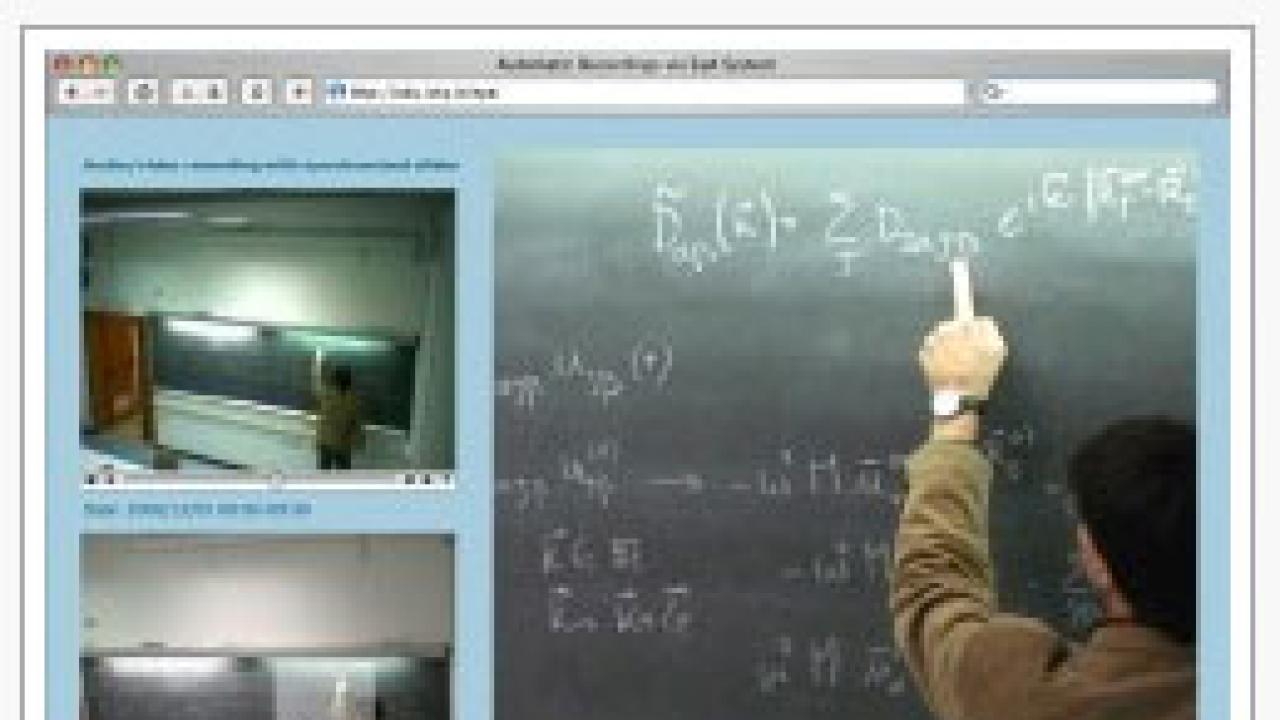
Students, teachers and anyone worldwide with a craving for
graduate-level courses on theoretical physics have a valuable, free
resource: online lectures from ICTP's Postgraduate Diploma
Programme. Produced by ICTP's Science Dissemination Unit (SDU), the
online lectures show a curious, ongoing trend amongst their users:
although targeted mainly to ICTP's Diploma students on-campus and
to scientists in the developing world who have scarce learning
resources, the web courses are being viewed by more people in
developed and emerging countries, especially Europe and the United
States.
Available since 2007, the online courses--on topics ranging from
basic and high energy physics to condensed matter and
mathematics--are captured from classes taught each year at ICTP to
groups of Diploma students who represent the brightest young
scientists from developing countries. Since ICTP launched its
Diploma Programme in 1991, 788 students from 71 countries have
participated, many of whom have continued their education at
leading universities throughout the world to attain their
PhDs.
The idea to record the Diploma courses and place them online was a
challenge that reflected ICTP's mission to support scientific
excellence in the developing world. The web offerings would
dramatically expand the reach of the Diploma Programme, allowing
budding scientists anywhere in the world the same access to
knowledge as those students based at ICTP in Trieste. Also, it was
the first time any institute had offered complete, on-line courses
of such high-levels of educational content in physics and
mathematics free of charge.
From 2007 to August of this year, ICTP's nearly 12,000 hours of
online Diploma Programme lectures have received more than 1 million
unique visitors. Contrary to what one might expect, the majority of
visits to the web courses comes from computers connected from Italy
(22%), USA (12%) and India (9%). Following close behind is China
(3%) and Africa, mainly in Egypt, Algeria, Nigeria, Sudan,
Ethiopia, South Africa, Kenya, Ghana and Rwanda (about 1%).
These numbers suggest that the lectures, taught in English by ICTP
scientists, are a useful learning resource for students both in
developing and developed countries. Some parts of the world,
however, are restricted both by language barriers and bandwidth
constraints. To tackle these two issues, SDU has implemented the
new Project "Didactica para el Desarrollo" with educational
scientific lectures in different languages, and has sent hard disks
containing terabytes of recorded lectures to countries in need like
North Korea and Pakistan.
All Diploma courses are recorded using ICTP's automated, open
source recording system, called Enhance your Audience (EyA), which
SDU developed. EyA makes such an endeavor technologically possible
and fiscally practical, as it requires no camera operators and no
post production. One year of lectures used about one Terabyte of
disk space, which today costs less than 100 Euro. And the cost of
an hour of recording is only few cents per hour.
In the near future, SDU plans to expand the online lectures to an
even broader audience by translating the recordings into French in
collaboration with ICTP associate Laure Gouba. Gouba is from the
African country of Burkina Faso where, like many developing
countries in Africa, the common language is French. So by
translating the lectures, ICTP is expanding the audience to which
it caters its on-line courses.
















